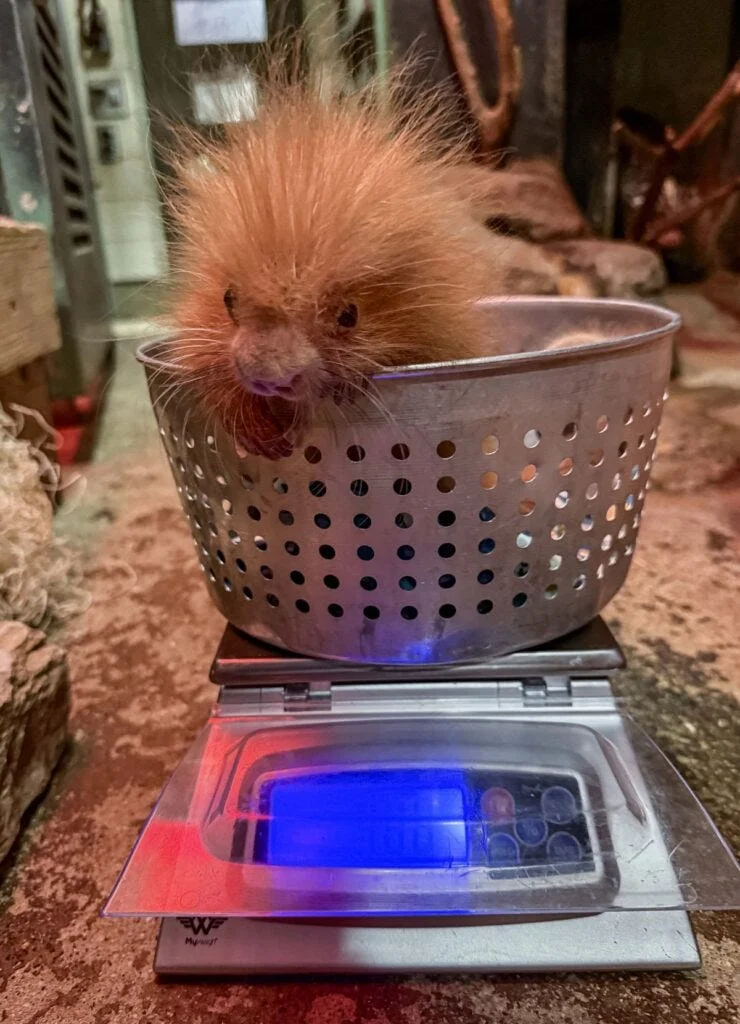
Welcoming A New Star: Meet The Milwaukee County Zoo’s Adorable Baby Porcupine
The Milwaukee County Zoo has recently added an exciting new member to its family: a 3-week-old baby prehensile-tailed porcupine. This delightful creature was born to parents Quinn and Seamus on March 27, marking the couple's sixth offspring. This event is not just another addition to the zoo; it signifies the ongoing success of conservation efforts and our connection to wildlife.
Upon announcing the birth on their Facebook page, the zoo invoked curiosity a day prior by posting an ultrasound video and prompting followers to guess the species. This interactive engagement showcases the zoo's efforts to involve the community and nurture an educational atmosphere.
Though the sex of the new porcupette has yet to be established, the zoo has confirmed that the young animal is thriving. From a birth weight of 527 grams, it quickly gained weight to reach 770 grams within two weeks. The dedicated staff carefully monitor the baby’s growth daily, ensuring it receives adequate care and bonding time with its mother.
"From day one, the porcupette was very strong and immediately mobile, displaying a healthy curiosity," the zoo detailed on their website. As the weeks progress, the baby has shown intriguing behavior, such as chewing on branches and exploring its surroundings. Quinn, the mother, has been noted for her patience and attentiveness, creating a nurturing environment for her young.
Visitors can meet Quinn and her adorable porcupette on the nocturnal side of the zoo's Small Mammals building—an excellent opportunity to connect with these charming creatures. But what makes the prehensile-tailed porcupine particularly fascinating?
These animals, native to the forests and rainforests of South America, are primarily arboreal, often found navigating tree branches where their prehensile tails come into play. Their bodies are covered with short, thick quills that flatten but stand erect when they feel threatened, a remarkable evolutionary trait for defense. Nocturnal by nature, these porcupines rotate to a new tree each night, nibbling on leaves and flowers to sustain themselves. On average, they grow to be between four to eleven pounds and can live up to twelve years.
The arrival of this baby porcupine at the Milwaukee County Zoo serves as a reminder of the beauty and importance of wildlife conservation. It opens a dialogue about the roles these animals play in their ecosystems, inspiring curiosity and engagement in wildlife preservation efforts. With the zoo dedicated to education and conservation, it is pivotal for us, as a community, to support these endeavors. What advancements in animal care and conservation do you find most inspiring? Share your thoughts in the comments below!